There cannot be a better critic of a game that tells us the story of the war for an Iraqi city than a US military veteran who fought in said war…
The Gamer interviewed John Phipps, who fought in Iraq, and he also was present in Fallujah in 2004. He mostly responded to what Peter Tamte, the CEO of Victura (the game’s publisher) said to Gamesindustry. „Speaking as somebody who was in Fallujah in 2004, this was an illegal war to start with. We never should have been there. There were a lot of heinous atrocities committed, especially in Fallujah. That’s not to say that all troops are war criminals, I don’t believe that for a second. Most of the people I was there with were genuinely decent people who wanted to try to do right by people. But that’s not to say that there weren’t acts of completely hideous atrocities there, because there were.
War crimes were committed by US soldiers and a lot of Iraqi civilians died, who didn’t need to die. Their deaths were completely avoidable and completely meaningless because we should never have been there. And so to say that “Oh, who cares about an Iraqi civilian’s perspective on the Iraq War” – I mean, it’s their fu_king country. You should want to portray that. Nobody cares? Make them care. If you are so dead set on making this game, make them care,” Phipps said.
He believes Tamte’s comments about making an apolitical war game is nonsense: „Show me a war that wasn’t started because of politics. You can’t. War is politics. It’s just a different form of politics. We have had so many stories about the US military told in this medium. When are we going to tell the stories of the other people who were involved in the war, namely the civilians who were caught in the middle?”
The war experiences are impossible to convey in a game: „Because my experience of war was screams, and people crying, and a lot of people getting shot. People getting killed, people I know getting eviscerated 30 feet away from me. Going to sleep every night wondering if I would wake up in the morning because you’re sleeping in an area with no cover and direct fire can come raining down at any time, which it often did. It’s years of PTSD, and physical therapy, and mental health therapy. Broken families, bereaved mothers. People who have lost husbands, wives, sons, daughters, cousins, brothers, sisters.”
However, Phipps added that individual heroics should not be ignored: „There are absolutely stories of individual heroism and self-sacrifice you can tell on the part of the US military, I’ve seen them in real life. Instances of true bravery, valour, and concern for your brothers and sisters on the battlefield, and also for Iraqi civilians.” The veteran added that we should not forget the angle of the Iraqi civilians, but the American soldiers should be portrayed as the bad guys in this scenario.
„You also need to be telling the stories of the Iraqi civilians who were just trying to survive and who were fighting back against an invading force. And if that means casting some US military units as the bad guy in a video game then so fucking be it. That’s life. It’s something that happened. If somebody were to invade the US tomorrow, we’d all pick up a weapon and fight. In that case, we are the Iraqi civilians – somebody has come into our country. It doesn’t make the entire insurgency evil. A lot of those people – all they knew about the situation was that a foreign army had come to their soil. Tell those stories,” Phipps said.
He is worried that the Six Days in Fallujah marketing is aimed at a specific base of players: „There’s a real danger of furthering the stereotypes of ‘Arabs bad, brown people bad, the enemy, everybody’s a religious extremist’ when that’s just far from the truth. I think the whole project is ill-advised.” He added that Spec Ops: The Line (which was based on the same events) came close to the psychological experience the war gave to the veterans, but it wasn’t perfect. The white phosphorous will be a distraction in his opinion, while Spec Ops: The Line showcased its effects – and it forced us to use it no less!
The veteran said that he isn’t as critical of Call of Duty as in the past: „Call of Duty is very upfront with you about what it is and what it’s trying to do. There’s nothing wrong with that. [Six Days in Fallujah], however, seems incredibly and intentionally disingenuous to somebody like me.” He also referenced The Last of Us Part II as a way to tell a story that blurs the line between villainy and heroics, showing that there is no perfect lens through which to tell any story, and that perspective can often shift who is the hero. „But at the end of the day, people are going to square with the fact that Iraq was our fault. All the US soldiers who died there, it was our fault. All the Iraqi civilians who died there, it was our fault. All the chaos that has been sewn throughout that country since 2003 is our fault. It’s all our fault. We were the bad guys. And the sooner we accept that, the sooner we can start to heal. We still have not apologized to Iraqi civilians for what we inflicted on them, and we need to. The US government needs to formally apologize to the Iraqi civilians for all of the men, women and children who are dead for no reason, who should be alive right now. If you take nothing else away from this, bear in mind that all of this is 100% our fault,” Phipps added.
In the end, he advised on how to effectively tell the story of the second battle for Fallujah: „We didn’t need to be there and the Iraqi people rose against a foreign invader. That’s not something you can blame them for. Yes, we fought them, I fought them – but I was over there getting shot at. I wish I’d never been there, but I was. If you’re gonna try to tell an accurate story about the Iraq War – specifically the Second Battle for Fallujah, which is what this game covers – then you need to talk about the fear, the regret of US soldiers there. Most of us didn’t wanna be there at all. You need to talk about Iraqi civilians losing their homes, their families, their children, and the anger that they feel as they pick up a weapon and fight the only physical manifestation of their grief they can, which was us. You have to be willing to portray the US military in a negative light. And that’s OK. It’s OK to do that. This fear that the industry has – and again, it’s not just [the games] industry, it’s the entertainment industry in general.
This fear we have of portraying US troops as the bad guys, or doing wrong, or being less than virtuous is ridiculous. People are virtuous and moral and just – organizations aren’t. Organizations are a reflection of the people that make them up and the US military is a melting pot of good people and bad people, just like society. It’s no different. So of course you’re gonna have good apples and you’re gonna have bad apples. It’s great to focus on the good apples, but you also need to focus on the bad apples because a lot of heinous shit was committed by US troops in Iraq and it directly shaped what happened on the battlefield. If you don’t tell those stories, you’re only telling about 25% of what happened in Fallujah,” Phipps said.
He thinks Highwire Games and Victura will flop with Six Days in Fallujah (which will launch this year on Steam and „consoles”): „Video games are an art form but they are meant to tell stories. They are not meant to educate you. No video game on earth can educate you as to what it was like to be in Fallujah in 2004. There never was and there never will be. I think this is gonna blow up in their faces. I do.”
This is a prime example of when a veteran drops the truth bomb.
Source: PSL

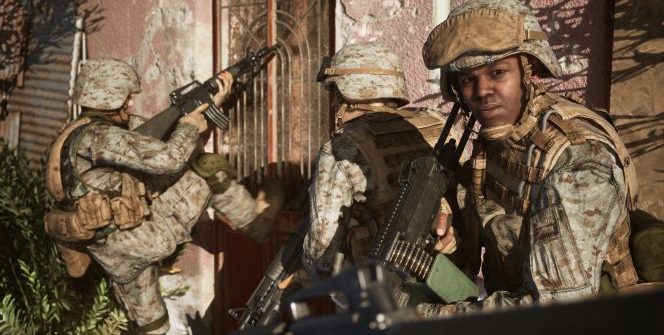
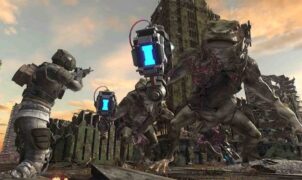



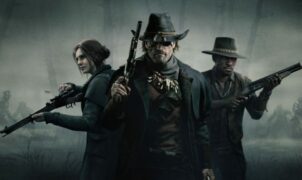


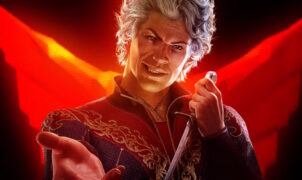


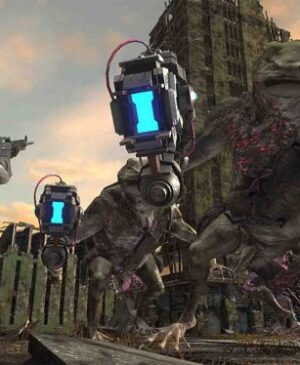


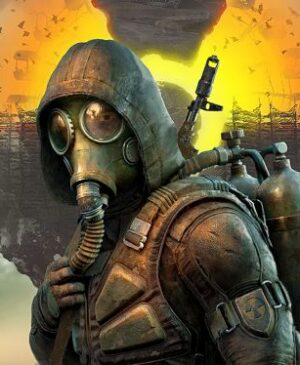
Leave a Reply